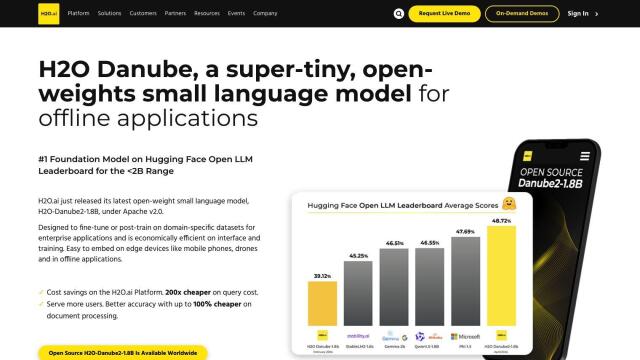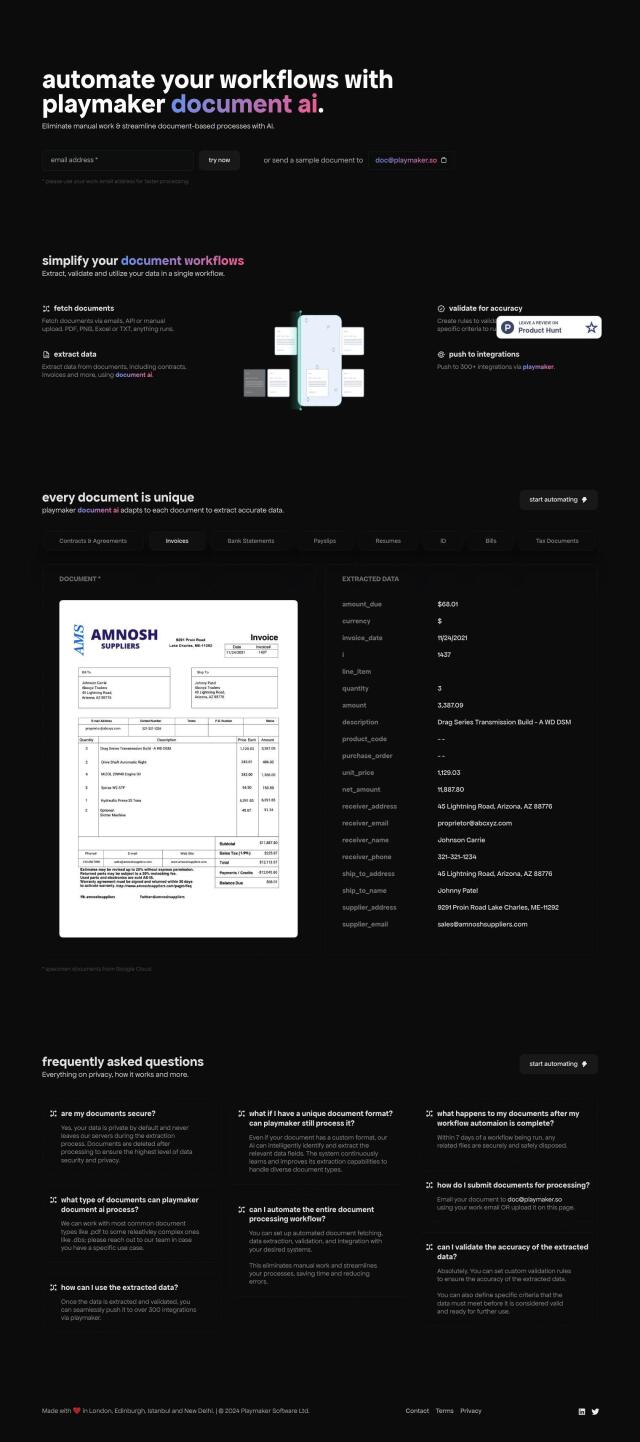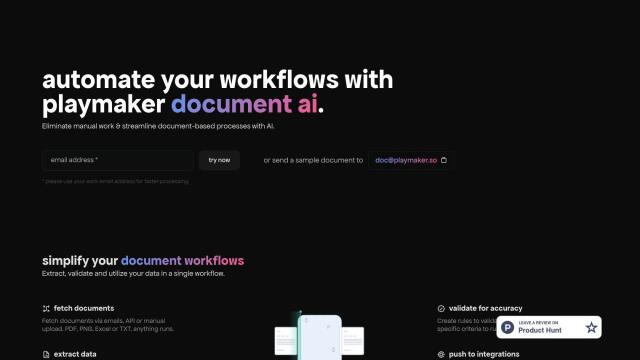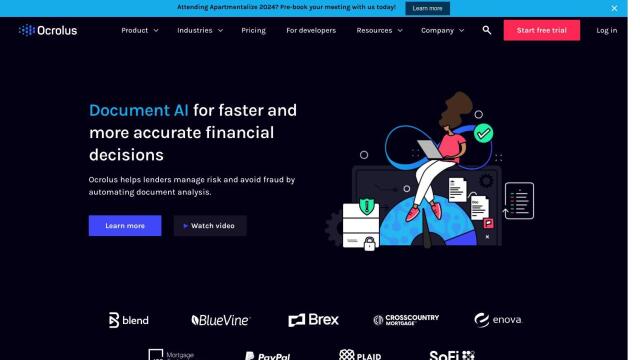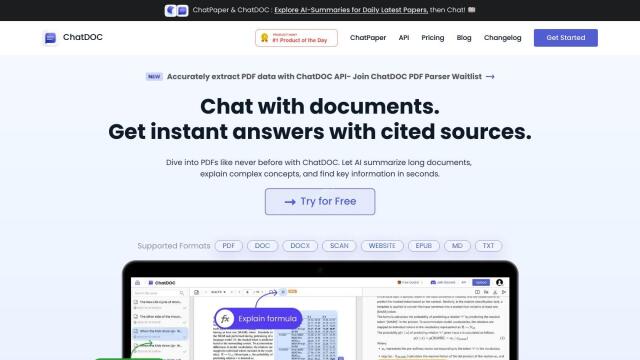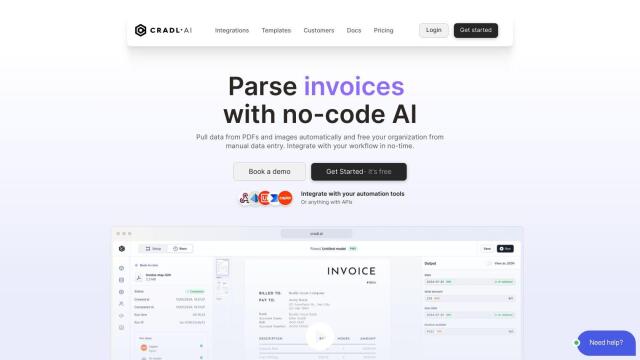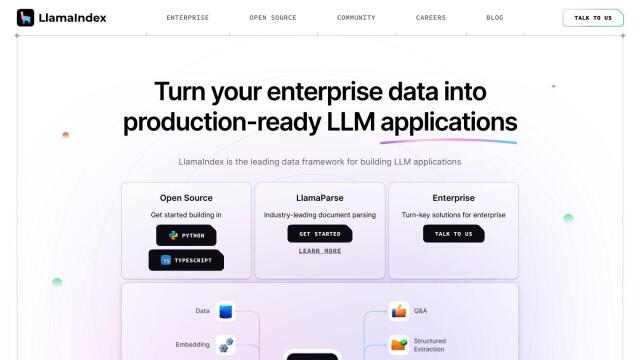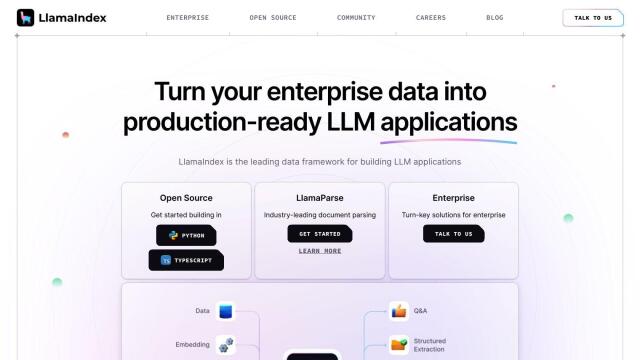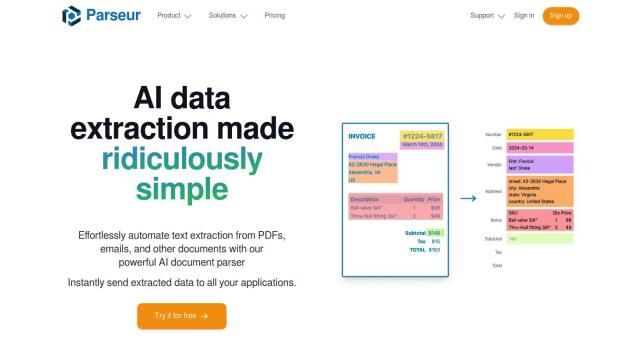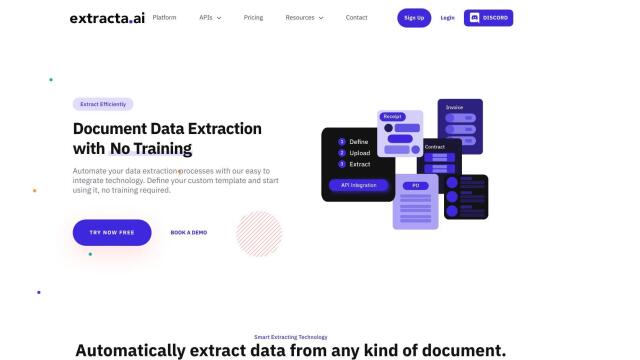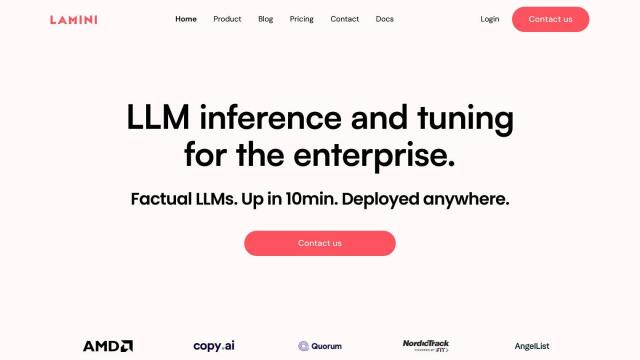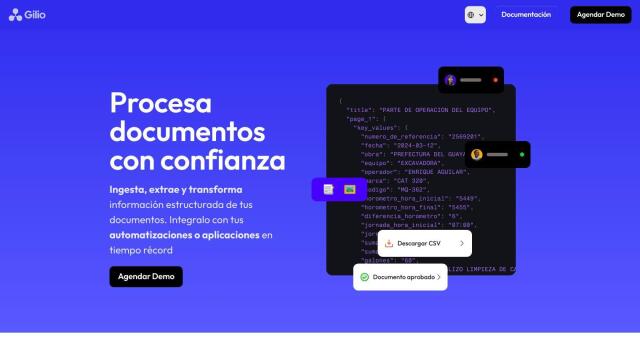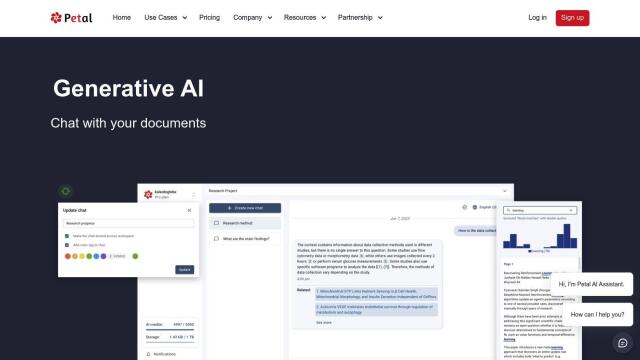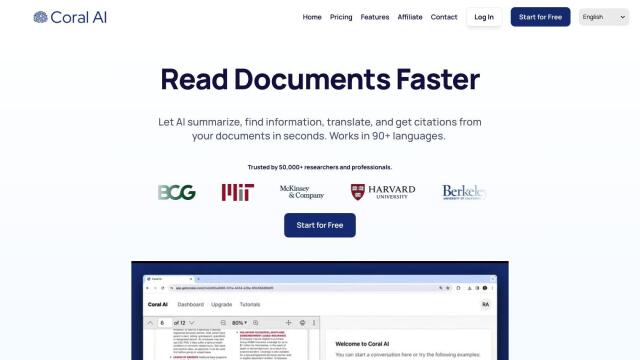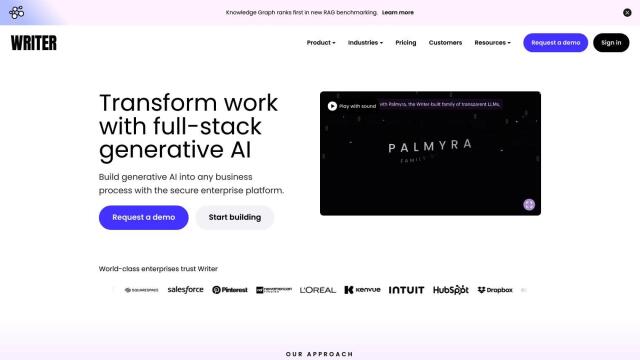Question: Can you recommend a platform that allows me to process and analyze large volumes of documents simultaneously?
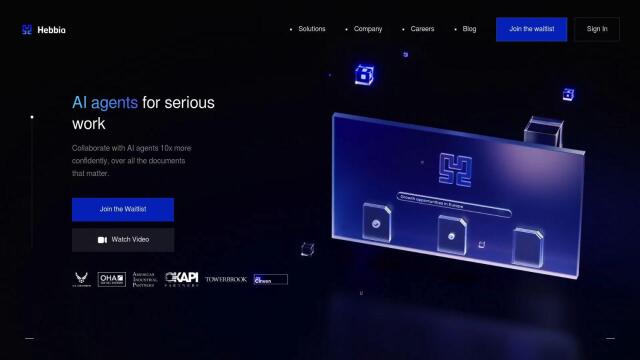
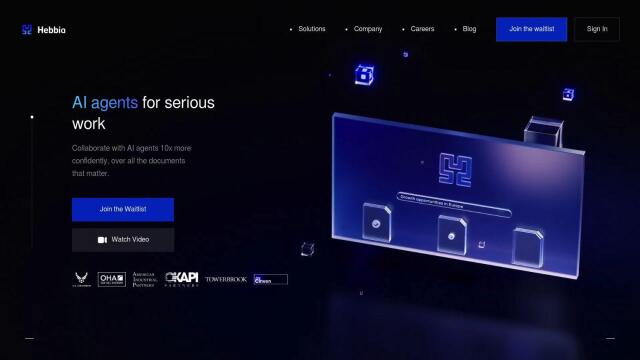
Hebbia
If you have a heavy-duty system to process and analyze lots of documents, Hebbia is worth a look. Based on Matrix technology, Hebbia uses AI to handle heavy lifting and to process millions of documents at once. It can process multiple files, has verifiable AI, automated workflows and modality flexibility, so it's a good choice for financial services, legal and pharmaceutical companies that want to extract, structure and analyze lots of documents.


Dataloop
Another good choice is Dataloop, an AI development platform that includes data curation, model management, pipeline orchestration and human feedback integration. It can be used to analyze lots of unstructured data from different sources, has automated preprocessing, and a marketplace for pre-trained models and pipelines. Dataloop has high security standards, including GDPR, ISO and SOC2, so it's a good choice for companies that need to speed up development but also keep data under wraps.

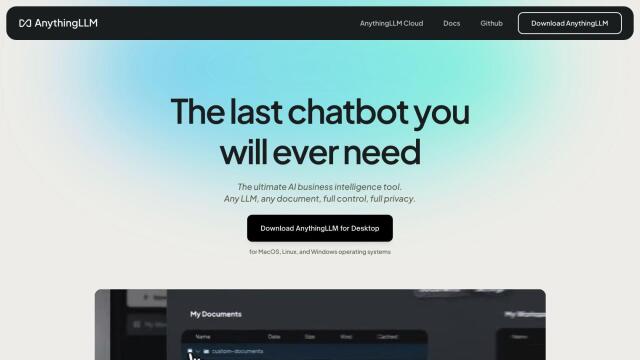
AnythingLLM
AnythingLLM is a flexible business intelligence tool that uses any Large Language Model (LLM) to process and analyze documents. It can handle multiple users, internal and external tooling, and runs completely offline. AnythingLLM has a customizable developer API and can handle a wide range of document types, so it can be used to meet specific enterprise needs while giving companies control over LLMs and privacy-preserving data handling.

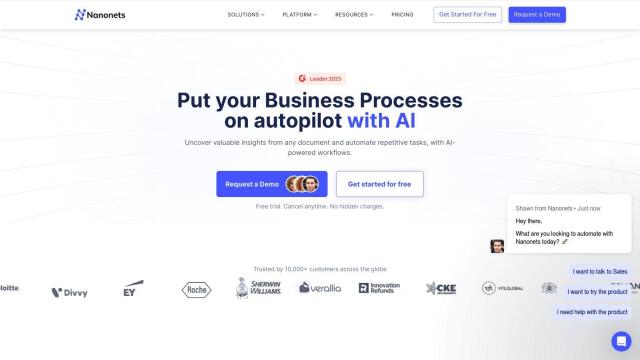
Nanonets
Last, Nanonets is an AI-powered automation platform that can extract insights from unstructured data and automate repetitive tasks. It includes seamless ingestion, AI-driven data extraction and smart decision engines. Nanonets is good for finance, manufacturing and healthcare companies, and can improve accuracy and speed up processing with compliance with strict regulations like GDPR and HIPAA.



